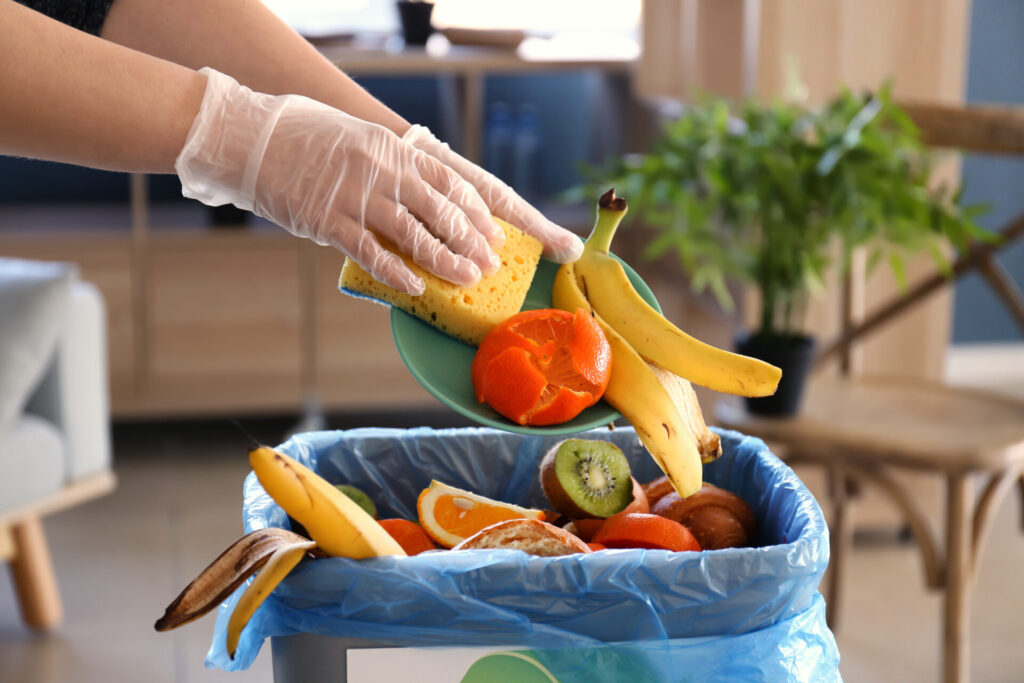Food is arguably the most basic necessity to sustain humanity. The process of feeding more than 7 billion people worldwide leaves us with massive amounts of food waste every day. In 2020, about 931 million metric tons of food waste were produced globally, which is about 17% of the total food available for the world to consume. The primary source of food waste is the homes across the globe, while the second is from the food service sector.
Despite this, worldwide hunger is still a rampant issue affecting millions today. Food waste has a massive impact on the world, and we all could reap tremendous benefits from its mitigation.
Impacts Of Food Waste
Food waste is rarely a topic of conversation for many as we don’t normally think about the food we leave on our plates. Its impact goes beyond our kitchen, though, with some of its effects including:
- Loss of biodiversity
- Extensive use of fresh water and soil nutrients
- Overfishing
- Accounts for significant amounts of greenhouse gas emissions
Decaying foods attracts wildlife and, when consumed, can harm them, affecting their numbers, reproduction patterns, and predator-prey relationships. The demand for food increases agriculture production, which consumes freshwater resources and soil nutrients.
What’s genuinely depressing is that the irrigation water used to grow wasted food could meet the needs of 9 billion people, the projected global population in 2050. Lastly, if food waste were a country, it would be the world’s third largest emitter of greenhouse gasses.
In handling food, especially in food processing, it can’t be avoided to have scraps left from peeling vegetables, cuts that are not uniform in size, or specifications that did not pass quality standards; all these must be discarded. Large food industries have huge compost facilities. At home, we can contribute using Maze home composters. I If we want to see large-scale changes, however, the food industry must take radical steps in mitigating food waste.
How To Address Food Waste In B2B Food Processing?
The food industry is comprised of a diverse network of providers and businesses, including food processing plants and food facilities like hotels and restaurants. The WWF has created a program to address food waste by following four guidelines: Prevent, Donate, Divert, and Compost.
- Prevent – To address food waste in the food sector, each stage of procurement and handling must be handled with utmost planning and care. The goal is to prevent wasting food which can be done through proper forecasting by the purchasing department, accurate measurement of those in the kitchen, and optimizing recipes to ensure no ingredients are put to waste. The kitchen staff is also tasked to follow storage guidelines so no food gets spoiled, leading to wastage.
- Donate – All wholesome food not sold at the end of the day must be donated to an approved charitable institution. This should be strictly monitored as you only want to give wholesome food to the less fortunate, and you don’t want them to suffer from food intoxication, which could be detrimental to them.
- Divert – You might wonder why many food establishments offer a plant-based option today. This is to reduce the use of meat in production which is one of the top sources of greenhouse gas emissions. Plant-based food mimics the taste of meat and is made from legumes like soybeans, grains like quinoa, mushrooms, and sometimes from jackfruit. They’re a healthier option since they’re low in saturated fats and high in fiber, which is good for the heart.
- Compost – Compost is a mixture of decomposing plant and food waste rich in nutrients that can be added to the soil to make plants thrive.
HL Agro is one such socially-responsible company which is actively integrating sustainability principles in its businesses to improve process, strengthen the reliability of design chain and pursue growth. From compliance to competitive advantage, we have evolved our sustainability strategy to focus on conserving natural resources, optimizing waste management, reducing carbon emissions, and enabling a greener supply chain model.
We reduce the emission of waste by boosting yield in our production process and increasing the recycling rate of our waste materials. At HL Agro, we enforce advanced waste management & water treatment facilities to minimize our overall environmental impact. Rejected materials are sold in the market in the form of hay or fodder & other non- recyclable industrial wastages are handed over to the regulatory bodies for their better management.
Benefits Of Reducing Food Waste

- Less agricultural and transport resources wasted
- Reduced methane production
- Financial savings
- Satisfy customer’s demand for sustainability
- Support corporate social responsibility
Extensive food processing facilities utilize anaerobic digestion to manage food waste to produce energy-rich biogas. Food waste is combined with other organic wastes like cow manure, poultry litter sewage, abattoir wastes, and crop residues. These materials are broken down and pass through a sequence of processes to produce fuel the facility can use to power machines and run its operation. It’s a very clean energy source and has made significant financial savings for many food industries.
What Happens If We Don’t Act Now?
Food waste is a burning issue. If we don’t act today, it could speed up the worsening condition of climate change. Climate change is the number one reason the world’s temperature increases every year, the ice caps are melting, and the world is experiencing catastrophic weather.
Conclusion
An estimated one-third of the produced food today goes to waste, which amounts to about 1.3 billion tons of food—more than enough to feed every hungry child on this planet. The food industry is urged to start making radical changes in their operations to mitigate this, for their large-scale actions can influence every household and massively improve our food wastage problem.



